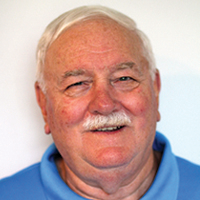John Schmitt
John Schmitt is a former Certified Well Driller/Pump Installer with decades of water well experience.
Keep the info flowing with our eNewsletters!
Get the latest industry updates tailored your way.
JOIN TODAYCopyright ©2024. All Rights Reserved BNP Media.
Design, CMS, Hosting & Web Development :: ePublishing

